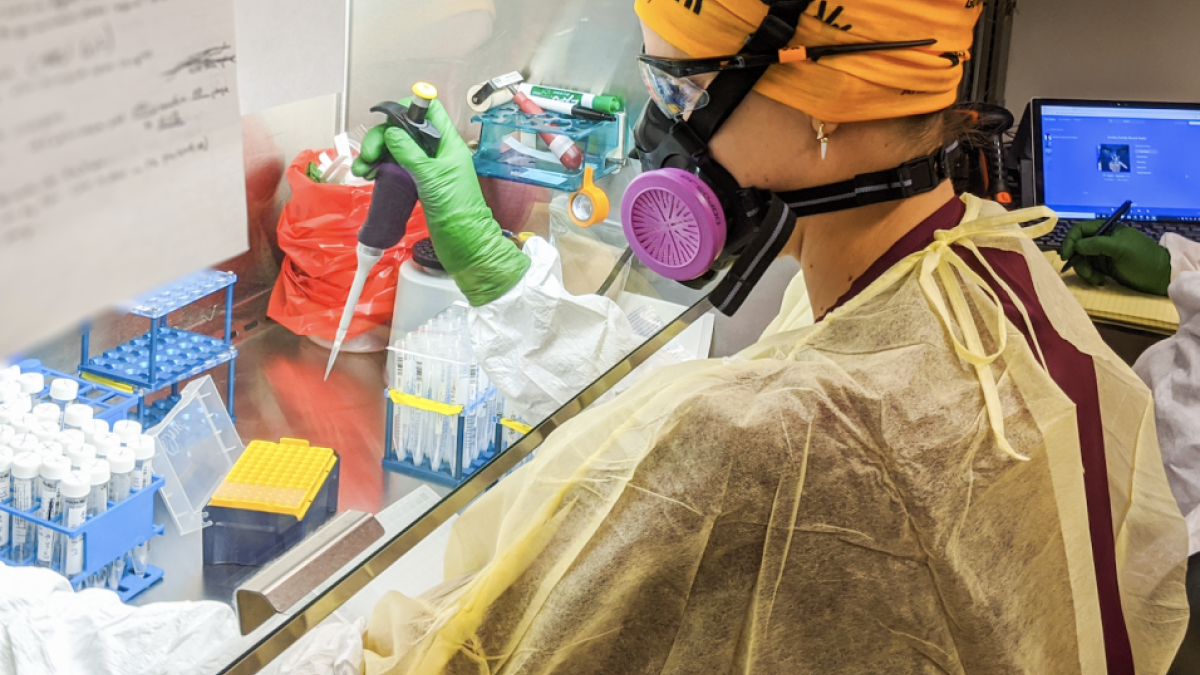Noisy roommates. Rigorous coursework. Sleep deprivation. Hunger pangs. Burgeoning romances.
Such are the woes of college life, but they can create real, substantial problems for students.
A recent study out of Belgium found doctoral students were at an increased risk for mental-health problems due to the pressures associated with academia. Though the study focused on postgraduate students studying science or humanities subjects, as several news outlets have reported, the findings stand to open up a conversation about the stress levels of all students in higher education.
As we herald in a new academic year, Associate Vice President of ASU Health and Counseling Services Aaron Krasnow wants students to know that experiencing things like anxiety and depression are completely normal, and that there are resources available right on campus.
“If you want to talk to us for any reason at any time, we’re here to talk to you,” he said.
Krasnow shared what to look out for, ways to cope and where you or a friend can get help if you need it.
Aaron Krasnow
Question: What are some of the biggest stressors or most common concerns of students at the beginning of a new school year?
Answer: Anytime anybody is starting anything new, what happens is that people go through a period of adjustment. It’s different for different people. One of the hallmarks of that adjustment period can be an increased stress level. Depending on a person’s ability to cope with stress, it may lead to new experiences, maybe feelings of being anxious or lonely, or it may exacerbate things that are underlying. Or maybe someone has had experiences with anxiety or depression in the past and under stress, they can resurface. But overall students adjust quite well.
That said, some of the most common concerns I hear from students are feelings of anxiety, followed by feelings of depression, followed by relationship concerns. There’s quite a bit of overlap among those concerns, but those are the top three. And they hold pretty consistent throughout school year.
Q: Are there things students can do to help cope with those stressors?
A: Adopting and maintaining a healthy lifestyle is the most important thing; eating well, being active, being engaged with supportive people in your life, avoiding negative influences on your well-being, avoiding or minimizing use of alcohol and drugs, surrounding yourself with positive people. ... If there are difficult people in your life, maybe learning how to deal with them or avoid them.
It’s challenging sometimes for college students because they’re in a new environment, so they may have to invent or discover anew [ways of coping with stress] once they get to college. While they may have had those skills in high school, they may have to re-learn things like determining those people who are close to them that they can trust, or how to balance new experiences and new responsibilities.
Q: When should someone seek professional help?
A: The first thing I’d say is a person should seek out help whenever they want to. If you want to talk to us for any reason at any time, we’re here to talk to you.
But how do you know when it’s a good idea? There are a couple indicators that might nudge someone in that direction: whenever what they’re dealing with is interfering with living their life, or when it has reached an intensity that they feel like they can’t handle. So those two things: interference and intensity.
Q: Why might someone avoid seeking help?
A: Unfortunately, stigma still exists about reaching out for help, in some communities more than others. But that stigma has a lot to do with confidence. People may be willing to do things that might be embarrassing if they think it will work out for them. We spend lot of time to try and make sure people are very confident in the help that’s available all around them at ASU. We want to remind people that what they’re going through is normal, and to have confidence that seeking help will work.
Q: What services are available to students at ASU, and what can they expect if/when they do meet with a counselor?
A: Students can check out our website for a list of specific services.
As far as what to expect, they can expect to be treated well. They can expect to be listened to. They will be seen that same day, within a short period of time. We don’t keep them waiting. They’ll get the opportunity to talk to a counselor about what’s going on. Their visit can be short or long depending on what they’re coming in for. Most of the time it’s a short talk; then we make a plan for how to deal with it and set up a follow-up visit. If they’re in a crisis, it can be a longer visit — as long as it takes to take care of what’s wrong. We don’t have a session time limit. It’s whatever is needed in that moment.
More Health and medicine

Making medicine side-effect free
Many drugs that address medical conditions can come with serious side effects. In drug commercials, the litany of potential side effects is often longer than the benefits being touted. Carl…

Diagnostic research happening at ASU focused on detecting diseases earlier to save lives
It was one of America’s founding fathers, Benjamin Franklin, who may have foreshadowed today’s health care innovation when he quipped the adage: An ounce of prevention is worth a pound of cure.In…

Fighting the fungus among us
It starts with a spore.When inhaled, spores of the coccidioides fungus can cause coccidioidomycosis — better known as valley fever. The spores may be fungi, but they are no fun.Valley fever usually…



